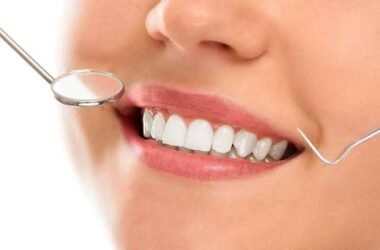Questions Answered in This Article:
- What Happens During Alcohol Detox?
- Why Supervised Detox Is the Best Way to Detox from Alcohol
- Can You Detoxify Alcohol at Home?
Detoxing from alcohol isn’t as simple as quitting cold turkey—it’s a medically complex process that can affect every system in the body. For people with alcohol use disorder or long-term dependence, withdrawal can be dangerous without clinical supervision.
This guide explains how to detox from alcohol safely, what symptoms to expect, and why professional support—like that offered at Scottsdale Detox—is key to long-term recovery.
What Happens During Alcohol Detox?
When someone stops drinking after regular or heavy alcohol use, their brain and nervous system must adjust to the absence of alcohol’s sedative effects. Alcohol slows brain activity, particularly by acting on GABA, a neurotransmitter responsible for calming the nervous system. Removing alcohol causes the brain to become overstimulated—triggering withdrawal.
Common alcohol withdrawal symptoms include:
- Anxiety, restlessness, and irritability
- Tremors, sweating, and nausea
- Insomnia or disturbing dreams
- Elevated blood pressure and heart rate
- In severe cases, hallucinations or seizures
Withdrawal severity varies, but for many with alcohol use disorder, detox can become life threatening without medical help. If you feel unwell when you stop drinking, have increased tolerance, or drink in secret, you may already be dependent—and professional detox is the safest option.
Why Supervised Detox Is the Best Way to Detox from Alcohol
Detoxing without medical oversight can be dangerous. Complications like delirium tremens, heart irregularities, or seizures may arise even in individuals who appear physically healthy.
Medically supervised detox in an inpatient setting offers:
- 24/7 monitoring of vital signs, hydration, and mental status
- Medications to reduce symptoms and prevent serious complications
- Mental health support for anxiety, depression, or trauma
- A calm, private space where healing can begin
At Scottsdale Detox, each client receives a customized detox plan that includes emotional support, medical care, and compassionate attention from trained professionals.
Can You Detoxify Alcohol at Home?
People sometimes consider home detox for privacy or convenience. However, it’s rarely safe—especially for those drinking heavily, using daily, or with co-occurring health issues.
Medical detox is essential if:
- You’ve experienced hallucinations, seizures, or delirium tremens before
- You have heart disease or high blood pressure
- You have mental health conditions like anxiety or depression
- You’ve relapsed after trying to quit alone
- You’re drinking large amounts of alcohol daily
At-home detox should never be attempted without clearance from a medical provider. Sudden withdrawal can lead to fatal complications. If you’re unsure whether detox is needed, contact a provider like Scottsdale Detox for a same-day evaluation.
Alcohol Withdrawal Timeline: What to Expect
Withdrawal symptoms typically unfold over several days and vary based on the severity of the addiction, medical history, and other personal factors.
Typical alcohol withdrawal timeline:
- 6–12 hours after last drink: Shaking, sweating, anxiety, insomnia
- 12–48 hours: Rising heart rate, blood pressure; risk of seizures
- 48–72 hours: Peak risk for delirium tremens—confusion, hallucinations, agitation
- 4–7 days: Physical symptoms taper off; emotional symptoms persist
- 7+ days: Cravings, depression, and sleep issues may continue
Some individuals experience protracted withdrawal, with lingering symptoms like insomnia or irritability for weeks. That’s why professional treatment and aftercare programs are critical beyond the detox phase.
How Medical Professionals Help Detox from Alcohol
At a licensed detox facility like Scottsdale Detox, a team of physicians, nurses, and mental health professionals work together to keep you stable and supported throughout detox.
Medications commonly used include:
- Benzodiazepines to prevent seizures and ease anxiety
- Beta-blockers to control heart rate and blood pressure
- Antipsychotics for severe agitation or hallucinations
- IV fluids and vitamins to correct dehydration and nutritional deficits
In addition to medical support, patients receive emotional care through daily check-ins, therapy sessions, and early relapse-prevention planning. This combination of physical and emotional care lays the groundwork for long-term sobriety.
Helping a Loved One Through Alcohol Detox
Watching someone detox can be frightening for family members and friends—but your support matters. Encouraging a loved one to seek professional help, rather than detoxing alone, is one of the most important steps you can take.
How to support someone during alcohol detox:
- Help with logistics like finding a detox center and arranging transportation
- Avoid blame or ultimatums; offer empathy and reassurance
- Stay connected during treatment, but respect healthy boundaries
- Learn about alcohol addiction, withdrawal risks, and recovery resources
- Join support groups like Al-Anon or attend family therapy
Scottsdale Detox also works with families to provide guidance and education throughout the detox process. Knowing what to expect—and how to respond—can help both you and your loved one feel more prepared.
What Happens After Detox?
Detox is just the beginning. Once alcohol has cleared the body, real healing begins through therapy, skills-building, and community support.
Post-detox treatment options include:
- Inpatient rehab for intensive, residential care
- Outpatient or partial hospitalization programs for step-down support
- Individual counseling and group therapy
- Ongoing care for co-occurring mental health disorders
- Participation in Alcoholics Anonymous or other support groups
Without continued treatment, relapse becomes much more likely. Research shows that people who do not engage in follow-up care after detox have significantly higher rates of returning to alcohol use. That’s why it’s essential to begin building a personalized recovery plan right away—so the progress made during detox can lead to lasting change.
What People Often Overlook About Detox
Most people expect detox to be physically uncomfortable—but many are surprised by the emotional and psychological toll. Here are a few often-overlooked challenges:
- Emotional withdrawal like sadness, guilt, or anger can surface suddenly
- Sleep problems may continue for weeks
- Poor nutrition can intensify fatigue and slow recovery
- Triggers like stress, social pressure, or boredom can feel overwhelming
These challenges are real—but with the right support, they can be managed. Detox centers that combine medical care with emotional and lifestyle guidance offer the strongest path forward.
Detox Done Right
Detoxing from alcohol is a vulnerable time—but it’s also the doorway to a healthier, more fulfilling life. If you or someone you love needs to stop drinking, it’s vital to do so safely.
Scottsdale Detox provides trusted, compassionate care with around-the-clock medical supervision and a team of professionals dedicated to your recovery. We understand the risks, the fears, and the courage it takes to begin—and we’re here to help every step of the way. Call (480) 646-7660 or email contact@scottsdaleazdetox.com to speak with our team and start your safe, supported detox today.








